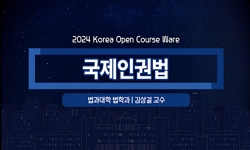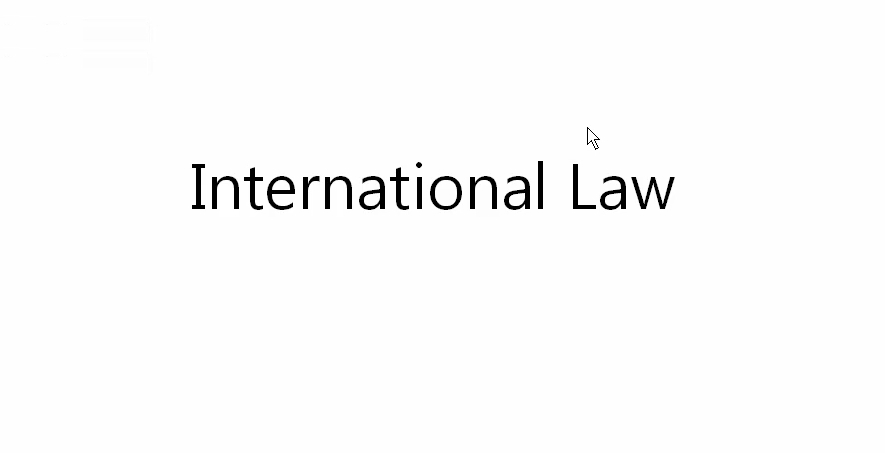After the Cold War, waging wars abroad has been explicitly prohibited by international law. Since international law does not explicitly prohibit states from resorting to unilateral sanctions against other states, economic sanctions have become the pri...
http://chineseinput.net/에서 pinyin(병음)방식으로 중국어를 변환할 수 있습니다.
변환된 중국어를 복사하여 사용하시면 됩니다.
- 中文 을 입력하시려면 zhongwen을 입력하시고 space를누르시면됩니다.
- 北京 을 입력하시려면 beijing을 입력하시고 space를 누르시면 됩니다.
https://www.riss.kr/link?id=A109685228
-
저자
Ningning Rao (서남정법대학)
- 발행기관
- 학술지명
- 권호사항
-
발행연도
2025
-
작성언어
English
- 주제어
-
등재정보
KCI등재
-
자료형태
학술저널
-
수록면
63-99(37쪽)
- 제공처
-
0
상세조회 -
0
다운로드
부가정보
다국어 초록 (Multilingual Abstract)
Different types of unilateral economic sanctions can lead to different legal consequences. This article, taking into account the manifestations of economic sanctions in different areas of law, examines the legitimacy of unilateral economic sanctions under public international law, international human rights law and international humanitarian law. This article argues that the implementation of unilateral economic sanctions can only be recognized by the international community if they comply with the norms of international law and are justified by the ethics required by international human rights and humanitarian law. The application of economic sanctions in international political interactions will not diminish in the coming decades, and the question of the legitimacy of unilateral economic sanctions should not be avoided. We should actively promote the development and improvement of international rules on unilateral economic sanctions. Although there are still controversies and challenges in determining the legal boundaries of unilateral economic sanctions, only through the establishment of an effective legal mechanism can the abuse of sanctions be restricted and sanctions be used in a lawful and legitimate manner, thus giving full play to the true value of economic sanctions in curbing internationally wrongful acts.
After the Cold War, waging wars abroad has been explicitly prohibited by international law. Since international law does not explicitly prohibit states from resorting to unilateral sanctions against other states, economic sanctions have become the primary choice of the world’s economic powers to achieve their foreign policies. The current implementation of many unilateral economic sanctions violates the basic norms of international law and generates many legal conflicts and disputes, further exacerbating international tensions. In addition, the imposition of unilateral economic sanctions has also caused humanitarian crises in the sanctioned states, posing significant human rights risks. The ethical legitimacy of unilateral economic sanctions has also become a hot topic of discussion. The question of legality is a fundamental international law issue of unilateral sanctions, which has always been highly controversial. Legal acts are inevitably based on legality, but they should also satisfy the requirement of justification. Therefore, the connotation of the legitimacy of unilateral economic sanctions should include both “legality” and “justification”. Legality focuses on what fits within the law, while justification involves following moral and ethical requirements.
Different types of unilateral economic sanctions can lead to different legal consequences. This article, taking into account the manifestations of economic sanctions in different areas of law, examines the legitimacy of unilateral economic sanctions under public international law, international human rights law and international humanitarian law. This article argues that the implementation of unilateral economic sanctions can only be recognized by the international community if they comply with the norms of international law and are justified by the ethics required by international human rights and humanitarian law. The application of economic sanctions in international political interactions will not diminish in the coming decades, and the question of the legitimacy of unilateral economic sanctions should not be avoided. We should actively promote the development and improvement of international rules on unilateral economic sanctions. Although there are still controversies and challenges in determining the legal boundaries of unilateral economic sanctions, only through the establishment of an effective legal mechanism can the abuse of sanctions be restricted and sanctions be used in a lawful and legitimate manner, thus giving full play to the true value of economic sanctions in curbing internationally wrongful acts.
동일학술지(권/호) 다른 논문
-
- 동아대학교 법학연구소
- 김용의
- 2025
- KCI등재
-
Problems and Solutions of the Operating Mechanism of China International Commercial Court
- 동아대학교 법학연구소
- zuiwha, Xu
- 2025
- KCI등재
-
- 동아대학교 법학연구소
- 쉬쨔샹
- 2025
- KCI등재
-
- 동아대학교 법학연구소
- 나송오
- 2025
- KCI등재





 DBpia
DBpia






